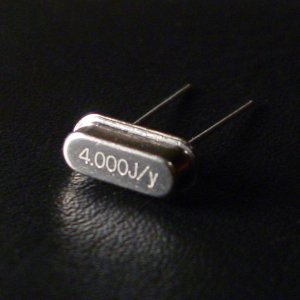Clock Speed is simply the measure of how fast your processor can function. It is a vital comparison parameter in differentiating processors to a far extent. It is measured in the SI units, Hertz (Hz). Anyway modern computers are powered with processors with clock speed of up to 5 GHz. But, for a newbie all this may appear more confusing as to what this clock is and what frequency has to do with computing. In this article we help you develop an understanding about all such fundamental aspects about the CPU clock.
Crystal Oscillator and Clock Pulses
Oscillators are electronic devices which can produce sinusoidal waveforms. Of all the various types of oscillators, crystal oscillator (quartz) is the most stable one and is used in computers. The sine wave of uniform frequency produced, is converted into a uniform frequency square wave.
This is the clock pulse, with the positive edge (or higher amplitude edge) representing HIGH state and the negative edge representing the LOW state. The HIGH and LOW states together is called a cycle; and 1MHz is a million cycles per second (since frequency is cycles per second, hence the unit Hertz).
So, a 1GHz processor runs one-billion of such clock pulses every second and likewise a 4GHz processor runs 4-billion cycles per second.
What the clock speed or clock pulses are about:
Every microchip has its own clock, and it is specific throughout its lifetime. Clock speed, however is considered as the rate at which the processor can perform its operations. Generally for a job to be done, the CPU requires a particular set of clock pulses; this often depends on the complexity of the task at hand.
So, the more the clock pulse in a unit time, the more is the clock speed and hence faster can your processor execute instructions. Hence a processor with a clock speed of 4GHz is expected to be 4 times powerful than one with a clock speed of 1GHz.
But it isn’t quite true that the 4GHz processor is really that much fast! This is primarily because clock speed of the processor isn’t the only factor that governs computer speed, while the pace at which the system bus, RAM, and the other devices act is also important. Most often all these components work in fractions to the clock speed of the CPU.
Conclusion:
Most of the modern computers come with clock speed between 1.5MHz and 4MHz. Though you cannot simply compare two different processors completely based on their clock speeds but nevertheless, it is one very important parameter that determines your computer speed.


